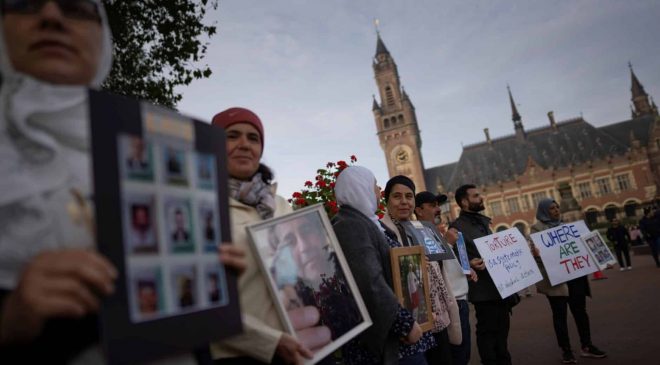
On June 8, 2023, the Netherlands and Canada filed a case alleging that Syria is violating the international Convention Against Torture. All three countries are party to the treaty. The case is not a criminal proceeding against individuals but seeks a legal determination of state responsibility for torture. The November 16 order responds to the Netherlands’ and Canada’s request for what are known as “provisional measures,” aimed at stopping ongoing violations and supporting steps necessary for future proceedings. It is legally binding on Syria.
In reaching its decision the ICJ considered various reports by the United Nations Commission of Inquiry on Syria, which concluded that there were “reasonable grounds to believe that the [Syrian] Government continued to commit acts of torture and ill treatment.” Although the Netherlands and Canada requested it, the court did not order Syria to report on the implementation of the measures.
The World Court will now work toward a full hearing of the case on the merits. The case may take several years to reach a resolution. The provisional measures order does not prejudge the merits of the allegations that Syria has violated provisions of the Convention Against Torture.
The court held hearings in October on the request for provisional measures. At those hearings, the Netherlands and Canada presented the court with detailed allegations over Syria’s violation of the convention, citing unlawful treatment of detainees, inhumane detention conditions, enforced disappearances, sexual and gender-based violence, violence against children, and the use of chemical weapons.
Lawyers for the two governments described a number of abuses amounting to various forms of torture in a network of security, intelligence, judiciary, and health care facilities under the Syrian government’s authority. They also pointed to the absence of any indication that the Syrian authorities are trying to prevent, investigate, or put an end to these practices. The lawyers emphasized the long-lasting physical and mental harm caused by torture on survivors and victims’ families.
Torture survivors, activists, and relatives of Syrians suspected of having been detained or forcibly disappeared by the Syrian government have expressed support for this case. More broadly, the families and activists have been at the forefront of efforts to ensure sustained scrutiny and continued efforts for accountability for grave crimes committed in Syria. These efforts include successful criminal cases bringing individuals responsible for torture and other atrocities in Syria before European courts, including in Germany, Sweden, and France.
On November 15, French judges issued arrest warrants against Syrian President Bashar al-Assad and three other senior officials on charges of complicity in crimes against humanity and war crimes over the use of chemical weapons against civilians in the town of Douma and the district of Eastern Ghouta in August 2013.
In November, Syria took part in an extraordinary joint Islamic-Arab summit on Gaza in which participating states urged the International Criminal Court (ICC) to investigate “war crimes and crimes against humanity that Israel is committing.” Syria is not an ICC member. In 2014, Russia and China blocked efforts at the UN Security Council to give the court a mandate over serious crimes in the country.
